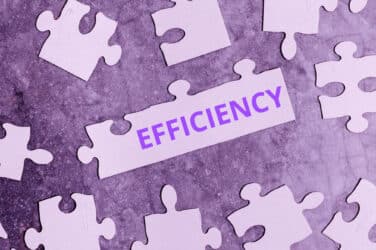
The London Stock Exchange Group’s attempt to sell its French clearing subsidiary may not satisfy competition concerns about its merger with Deutsche Börse according to Axel Pierron, co-founder and managing director at consultancy Opimas.
The London Stock Exchange said in a statement yesterday that it is exploring the sale of LCH SA, LCH Group Limited’s French-regulated operating subsidiary, in order to address potential anti-trust concerns from the European Commission in relation to the announced acquisition of the UK exchange by Germany’s Deutsche Börse.
Pierron said in an email to Markets Media: “The initiative by the LSE to sell the French piece of LCH.Clearnet—the legacy of Clearnet—is an attempt to kill two birds with one stone: get rid of the French platform that has limited future prospects due to its focus on the cash market and which has been unable to deliver any economies of scale since the notorious failure to integrate the UK and French platforms into one; and try to please regulators. It may not work, but it’s a nice try.”
The European Commission said yesterday it was opening an in-depth investigation into the proposed merger between Deutsche Börse and LSE.
Commissioner Margrethe Vestager, in charge of competition policy, said in a statement: “We must ensure that market participants continue to have access to financial market infrastructure on competitive terms.”
The Commission’s preliminary concerns included clearing as the deal will combine several of the largest central counterparties in Europe combine the largest margin pool in the world of around €150bn ($167bn). The combination of the parties’ clearing houses could eliminate competition in a number of areas, including bonds, derivatives and repos, adversely affect competing trading venues that depend on clearing services provided by LCH and adversely affect competitors in post-trade markets, such as collateral management, settlement and custody services.
Derivatives were also listed as a concern as Deutsche Börse’s Eurex is the global market leader for exchange traded long-term interest rate derivatives, while LCH’s SwapClear is the largest player for clearing over the counter interest rate derivatives. The Commission said: “Both parties have recently set up, or are in the process of launching, competing offerings to each other’s franchises. The Commission has preliminary concerns that their development might be put at risk by the proposed transaction.”
In addition, the Commission said the merger could lead to a near-monopoly in single stock equity futures and options based on Italian securities where the two exchanges are the only competitors. Other concerns listed by the Commission included German equities, exchange-traded products and index licensing.
The Commission has 90 working days until 13 February 2017 to make a decision.
Euronext, the pan-European exchange, has a clearing contract for cash and derivatives with LCH’s French subsidiary which ends in in 2018, with a one-year notice period. In May this year Euronext presented “Agility for Growth”, its strategic plan to 2019, which included delivering choice in clearing in cash markets, creating optionalities in derivatives clearing and diversifying the post-trade franchise.
Euronext said at the investor day in May: “The current exchange environment creates further uncertainties around continued competition. Open Access for derivatives is unproven, operationally risky, complex and unavailable before 2020 and there are limited options for Eurozone derivative clearing while client migration is complex.
The presentation said Euronext had partnered with EuroCCP , which clears pan-European equity markets, for cash and was analysing several options for derivatives clearing.
Last month Euronext announced it had agreed to acquire a 20% stake in EuroCCP for €14m. Euronext said: “This transaction will enable Euronext to offer user choice in clearing for the equity markets within the Eurozone, through the implementation of a preferred CCP model followed by a fully interoperable service, which will be open to other CCPs in due course.”
The pan-European exchange said on its investor day that in order to accelerate a standalone strategy, its growth ambitions will be achieved both organically, leveraging on its existing assets and talents, and inorganically, through disciplined and selected bolt-on acquisitions.
Euronext added: “The overall amount allocated to development costs and bolt-on acquisitions will be comprised between €100m and €150m over the period. In an evolving industry landscape, Euronext will carefully assess any potential opportunity resulting in a transformational transaction that will create value for clients and shareholders.”
More on exchanges:





